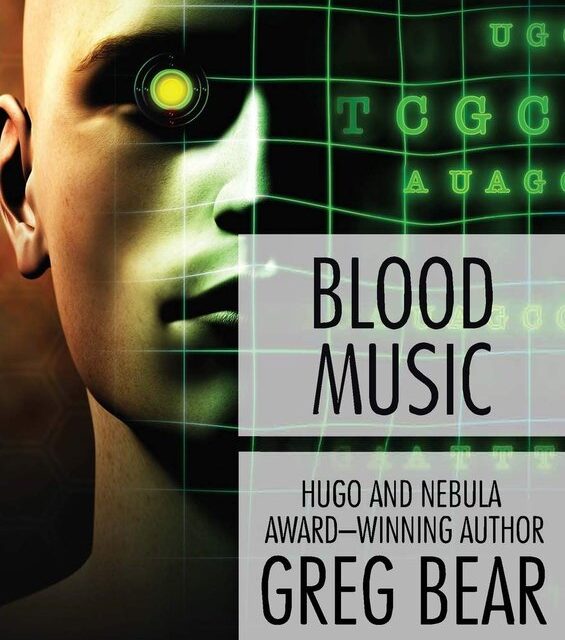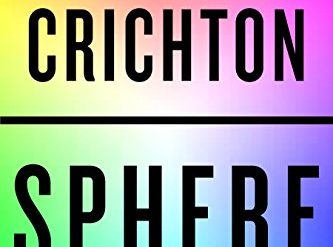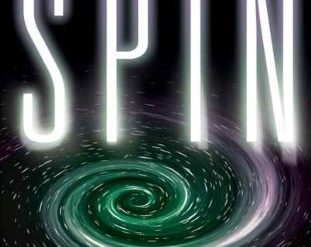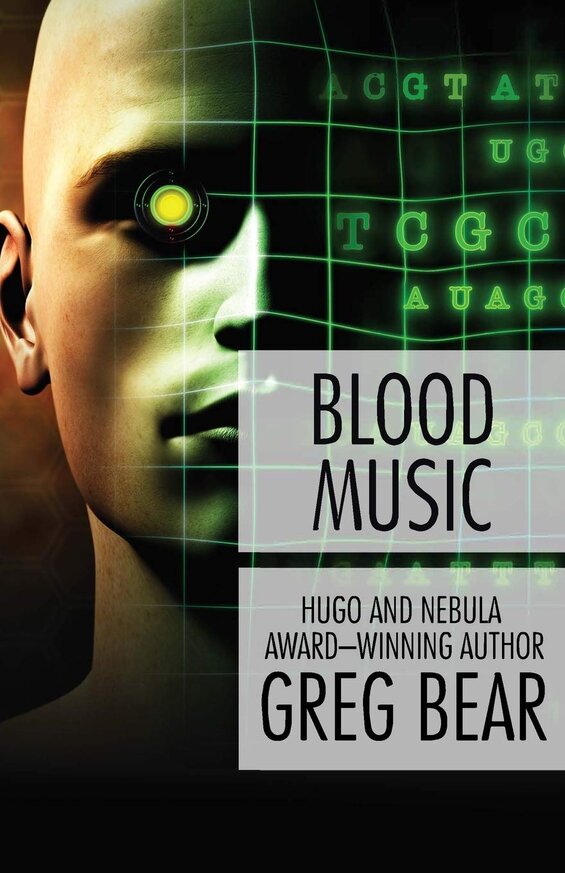
Estimated reading time: 4 minutes
News stories about the development of the vaccines against COVID-19 have taught many of us that cells within our bodies can act as though they have purpose and intention. But what if those tiny building blocks of life could gain self-awareness and become intelligent? That’s the premise on which science fiction author Greg Bear grounds his award-winning novel, Blood Music. It’s an eye-opening journey into the unimaginably complex systems that sustain our lives—and a biological technothriller that may keep you on the edge of your seat.
A maverick researcher building biochips
Vergil Ulam is a biomedical researcher with an M.D. degree, and he’s brilliant. He’s also thoroughly unscrupulous, having hacked his credit rating and his employment files to secure a position in the lab of Genetron. The La Jolla, California-based company is the leading firm in the United States on the trail of developing MABs, or Medically Applicable Biochips. And Vergil is badly miscast for the company. He is impulsive and heedless of consequences, having violated company policy to conduct proscribed experiments on mammalian cells after-hours. And when his bosses find out, he is forced to leave. The problem is, he can’t bear to abandon his research. So, expecting little result, he injects the product of his latest experiment into his own blood stream on his way out the door. And what comes next represents an existential threat not just to Vergil but to all life on Earth.
Blood Music by Greg Bear (1985) 262 pages ★★★★☆
Winner of the 1983 Nebula Award for Best Novelette and the 1984 Hugo Award for Best Novelette
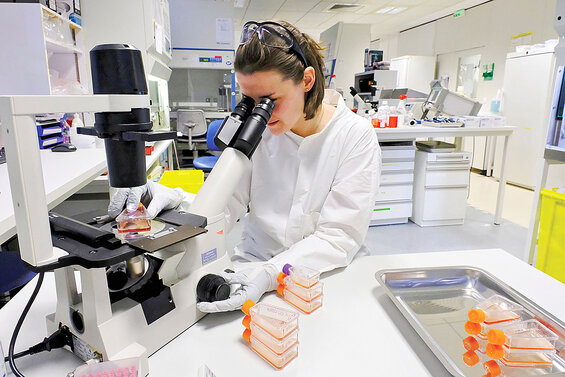
A biological technothriller based on hard science
The novel—those literary awards were for an earlier and shorter version of the story—follows a handful of characters as the terror unleashed by Vergil’s thoughtlessness expands out from La Jolla throughout North America. Vergil takes center stage, then a world-famous neurosurgeon and advisor to Genetron, and finally a handful of survivors of the “plague” Vergil creates.
But Blood Music is not a horror story. It is, instead, at base an example of the hard science fiction for which Greg Bear is so justly known. In his descriptions of Vergil’s work in the labs, he demonstrates that he knew far more about genetic engineering in 1984 than I do today (and probably more than you, too.) It’s a little rough going for a general reader. And, in the story’s later stages, Bear shifts from hard science to a highly imaginative portrayal of the biochips at work. The ending’s not Hollywood-happy, but it’s far from the global catastrophe implied earlier in the tale.
Blood Music is one of just twenty-five novels that have ever won both Nebula and Hugo Awards. So this biological technothriller might well be regarded as must reading for a science fiction fan.
About the author

Greg Bear (1951-) has written more than fifty science fiction books. As Wikipedia notes, his work has covered themes of galactic conflict (Forge of God books), artificial universes (The Way series), consciousness and cultural practices (Queen of Angels), and accelerated evolution (Blood Music, Darwin’s Radio, and Darwin’s Children). He is also an illustrator and one of the five co-founders of the San Diego Comic-Con. He is married to Astrid Anderson, the daughter of the science fiction and fantasy authors Poul and Karen Anderson. They have two children and live near Seattle.
For related reading
I’ve also reviewed three other excellent books by Greg Bear:
- Darwin’s Radio – Darwin #1 of 2 — A brilliant novel about fast-tracked evolution
- Darwin’s Children – Darwin #2 of 2 — A novel view of the posthuman future
- The Forge of God Forge of God #1 — Greg Bear’s powerful tale of interstellar conflict
For more good reading, check out:
- The ultimate guide to the all-time best science fiction novels
- 10 top science fiction novels
- The five best First Contact novels
- Seven new science fiction authors worth reading
- The top 10 dystopian novels
And you can always find my most popular reviews, and the most recent ones, on the Home Page.

